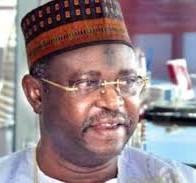A writer returns to the parliament

By Wale Okediran
‘In a democracy, parliament is our society’s last line of defence, safeguarding our wellbeing, our pursuit of happiness…’
-Fleur Anderson
WE were warmly received at the House of Representatives parking lot by some staff of the National Assembly, Abuja, Nigeria that morning with a clear sky above. Even though a Yoruba adage has say: ‘A kii ke ‘yago’ fun elesin ana’ (We don’t beckon on people to ‘give way’ for an erstwhile horse rider), this was not our case on the day in question. Despite being ‘former horse riders’, the warm reception and cordiality was deep.
In accordance with parliamentary tradition, the House had passed a motion the previous day to allow former House Leaders and members to sit in the Legislative Chamber to attend the Valedictory session in honour of late Hon. Ghali Umar Na’Abba, former Speaker of the Nigerian House of Representatives (1999-2003), who died on December 27, 2023.
At the lobby, we were received by the portraits of former Speakers who smiled at us from beneath their ceremonial attires. I noticed that nothing much had changed. Some of the parliamentary staff including lift operators and chamber secretaries were still there, looking older and more robust like well-fed Nigerians.
Even Nana Asein, who has served about six successive Speakers as Private Secretary, was still on duty. One former member, who was happy to see the hard-working lady again, joked that judging from the legislative experience she must amassed over the years, she should automatically be elevated to the position of a lawmaker!
After many years of not seeing each other, the motley group of ex-lawmakers, who had gathered on a short notice, were in a convivial mood, as we hugged and shook hands. Despite our occasional political battles and tiffs while on the floor of the House, we were all happy to see each other. All sins were forgiven as we greeted each other like long lost brothers and sisters.
It is on record that we all had varied post-parliamentary experiences. While some of us had gone on to hold other important political offices such as state governors, senators, ambassadors, and ministers, among other positions, others have remained in the House. Yet others just seamlessly returned to their former professions or simply took up new jobs or gone back to school. And despite the wear and tear of the years, we all appeared to be in good health – well kept but ‘fairly used’ men and women in the twilight of their lives!
It was nice to see the Speaker during my time and former Governor of Katsina State, Aminu Bello Masari again. I recollect having asked him on one of my trips to Katsina, as his guest, which of the two political posts he preferred. In his characteristic whimsical style, he said he preferred being a governor. As he put it: ‘As a Speaker, I was just one privileged member out of 360 members. Even though I was the Speaker, I never could predict where the next ‘bullet’ would come from!’
I knew what he meant. As one of his foot soldiers in some of his impeachment sagas as Speaker, I knew what it takes to keep the exalted Speaker’s seat in the tough terrain of Nigerian politics.

Ghali Umar Na’Abba
Also in the group was Binta Garba, who had gone on to become a Senator and later chairman of her political party in her state of origin. Perhaps, the first woman to hold such a difficult and challenging job. It was her antecedence as a strong and eloquent woman politician that inspired the female protagonist, Hon. Lizzy Bello in my award winning book Tenants of the House.
As we later took our seats in the Green Chamber, a sudden stir and buzz came over the House. It was Femi Gbajabiamila making his entrance. After a 20-year stay in parliament, the former Minority Whip, Minority Leader, Majority Leader, Speaker and now Chief of Staff to the president was obviously the starboy of the parliament. Almost everybody wanted to speak with him. Although I had predicted in his biography Fearless: The Emergence of a Virile Opposition Leader, which I wrote way back in 2012, that he was a politician with a lot of potential, I never knew that his rise as one of the most important leaders of the current democratic dispensation would be so fast.
We soon settled down to the job of the day, as the Leader of the House, Prof. Julius Ihonvbere, a former university don and my friend from the University of Ife days, moved the motion for the commencement of the valedictory session. He was seconded by the Minority Leader, Kingsley Chinda who sat next to me in the frontrow of the chamber. During our brief conversation, Chinda reminded me of his pet project; a constitution alteration Bill to end the current Presidential system of government and revert to the Parliamentary system previously practised in Nigeria’s First Republic, which he recently presented alongside 60 other lawmakers in the house.
The Speaker, Rt. Hon Abbas Tajudeen, commenced the day’s proceedings with his welcome address thus: ‘Honourable Colleagues, Distinguished Guests, Ladies, and Gentlemen. Today, we gather in this hallowed chamber in solemn remembrance of and to pay tribute to an extraordinary statesman and patriot, His Excellency Rt. Hon. Ghali Umar Na’Abba (CFR), who passed unto eternal glory on December 27, 2023. Na’Abba served as the Speaker of the House of Representatives from July 1999 to May 2003. He, undoubtedly, left an indelible mark on our nation’s democratic journey and will be remembered as one of the titans of our democracy….’
After him, other speakers testified to Na’Abba’s courage, boldness, dedication to the principles of democracy, exemplary leadership and steadfast commitment to the time-honoured principles of separation of powers.
As one of them put it: ‘Of all his qualities, what stands out the most is his simplicity, austerity, contentment and rare honesty. He was a modest and deeply religious man who gave the last full measure of devotion to his work and Nigeria. He lived a simple life but always with the end in mind. His life is, therefore, a worthy lesson for political office holders of today and generations of politicians to come.’
After a family member had thanked the Speaker and members for the honour done their father, a motion moved by Hon. Aliyu Madaki titled, “Need to Immortalize former Speaker, late Ghali Na’Abba by naming the National Assembly Service Commission building after him,” was adopted and passed to the Senate for concurrency.
It was a deeply engaging celebration of life, loss, friendship and the power of service and scholarship. The speeches were insightfully moving with frank personal recollections and anecdotes that reminded us of the communality we share not only with our contemporaries but also with all historical epochs.
Since the parliament in a democracy has been seen as society’s last line of defence as well as the repertoire of the people’s wellbeing and happiness, it was nice to hear the Speaker’s promise that the legislature will assist in lifting the country out of her current tough situation. However, before the parliament can fix the country, it has to first fix itself because out there on the streets, the impression about the legislature is not good enough. Fortunately, the Speaker seemed to be aware of this fact, when he said, ‘As legislators, it is incumbent upon us to ensure that the House continues to serve as a forum for meaningful dialogue, a catalyst for change, and a protector of the rights and freedoms of our citizens.’
Without prejudice to the Constitution Alteration Bill which seeks to end the current Presidential and revert to the Parliamentary system of governance previously practised in Nigeria’s First Republic, a Bill currently before the House, it seemed to me that our progress as a nation is not dependent on the type of system we run but our attitude to the job of nation building. Our progress also depends on the quality of our political, bureaucratic and technocratic leadership at every level.
No matter the system of government we adopt, we can only develop as a nation when we have a well committed and high quality pool of human resources that can effectively manage our public affairs. According to one of Shakespeare’s famous quotes; ‘The fault, dear Brutus, is not in our stars, but in ourselves that we are underlings!’
As we later filed out of the cavernous parliamentary building at the end of the legislative proceedings, I was overcome by nostalgia and wanted to linger on amidst the Committee and Hearing rooms where I had cut my legislative teeth. I wanted to revisit the Corridors and Lobbies where we often held impromptu political meetings including the second floor restaurant where we usually reconvened to celebrate parliamentary successes or lick our wounds when our favourite motions and Bills were defeated.
I also wanted to take another look at the open courtyard in front of the ‘white house’ originally designed to receive protesters in the spirit of democracy but was told that the courtyard had been converted to a car park.
The sun was still up when we later moved downstairs to the main entrance of the building for a group photograph with the family of our late colleague. I could not resist staring at the stunning view of the surrounding Aso mountain as the glowing sunbeam of the advancing twilight danced over its peak.
I was still admiring the mountain and the surrounding beautiful landscape when lunch was announced. Unfortunately, I couldn’t wait. I had to catch a flight out of the country. I had to go back to work and to the woman I left behind.
Dr. Okediran served as a member in the House of Representatives and wrote Tenants of the House based on his legislative experiences



